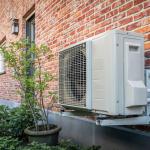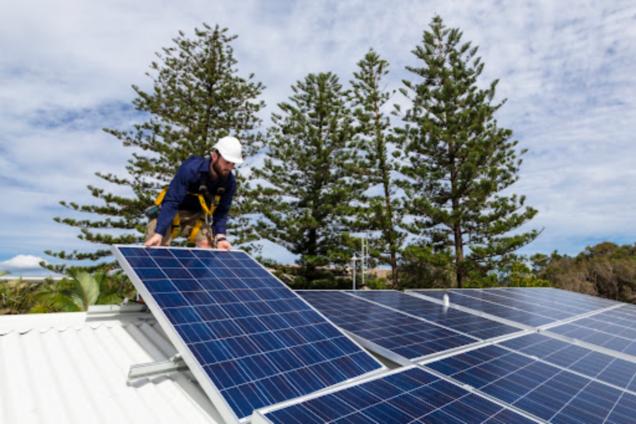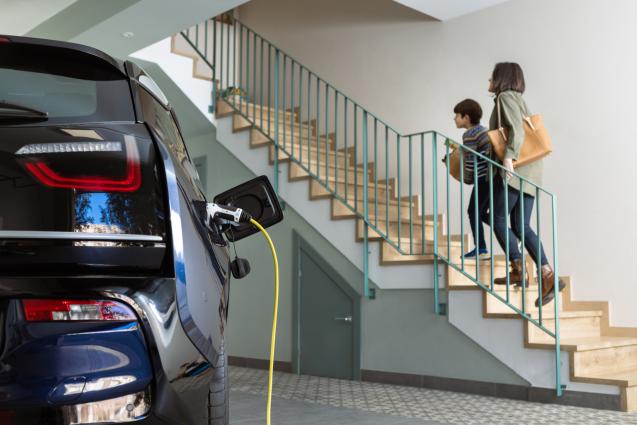
Cool Comfort, Smart Choices: Energy-Efficient AC Guide
By Complete Electrical Service|May 14, 2024
Being energy-efficient has become more than just a trending buzzword in today's times. It is a responsibility each one of us must embrace to pave the way for a greener, more sustainable future. The first step? Start in our homes. One smart choice at a time, beginning with an energy-efficient AC. Through this comprehensive guide, we aim to expand your understanding of energy-efficient air conditioners, uncover essential features, delve into their cost-effectiveness, and pinpoint effective maintenance strategies.
Understanding Energy Efficiency in Air Conditioners
Let's tackle energy efficiency. Simply, it encapsulates the principle of delivering the desired function using minimal energy. An apt translation for air conditioners would be providing optimum cooling levels at the lowest energy consumption. When we talk of energy efficiency in terms of air conditioning units, we consider the cooling capacity relative to energy consumed. The higher the cooling achieved for a given amount of energy signifies a more efficient AC unit.
So, why should energy efficiency be a pivotal factor when considering an AC system? The answer lies in the dual benefits it provides—both economical and environmental. A major chunk of our utility bills often comprises air conditioning costs, especially in warmer months, something that can significantly be reduced with energy-efficient AC units. Simultaneously, decreasing energy consumption also implies less strain on our power grids—a step towards reducing greenhouse gas emissions and slowing down climate change acceleration.
Features to Look for in an Energy-Efficient AC
Understanding what elements contribute to an AC's energy efficiency can assist you in making an informed acquisition. For starters, a high EER (Energy Efficiency Ratio) indicates superior efficiency. The air conditioning system must ideally feature a variable-speed scroll compressor accounting for energy-saving operations. Additional features such as a fan-only switch, an automatic-delay fan switch, and a filter check indicator aide in conserving energy.
An Energy Star rating also becomes pivotal while making the choice. A sign of endorsement from the U.S. Environmental Protection Agency (EPA) and Department of Energy, it ensures the model effectively reduces greenhouse gases and other pollutants, thereby contributing to a healthier environment. Besides, the size and power ratings of the AC unit are also considerable factors contributing to the system's efficiency. An oversized or overpowered AC can lead to excessive energy consumption, while underpowered or smaller ones may fall short in cooling the room effectively. So, make sure to consider the room's size while choosing an AC to ensure the unit's size and power is apt.
Evaluating the Energy Efficiency Ratio (EER)
EER is a quantitative measure that gauges how efficiently an AC uses power to cool your spaces. It is derived from the ratio of the cooling capacity (measured in BTUs or British Thermal Units) to the power input (typically given in watts). Thus, an air conditioner with a higher EER ensures the same amount of cooling using less power, making it a smart, cost-effective choice.
The usual question that arises is how the EER rating reflects on energy savings? Think of it as a scale that directly correlates with your utility bills—the higher the EER of your AC unit, the lower you can expect your monthly electricity expenditure to be.
The Cost-Benefit Analysis of Energy-Efficient AC Systems
With sustainability on the rise and growing awareness, it's no surprise that energy-efficient models, especially in air conditioning systems, are gaining traction. However, many prospective buyers tend to baulk at the initial price tag. Admittedly, energy-efficient AC systems might require an initial investment higher than their traditional counterparts. But before drawing conclusions, consider the long-term benefits. These AC systems provide substantial long-term energy savings, lowering your utility bills, and enabling the system to pay for itself over time.
Likewise, many overlook the wider benefits of energy-efficient air conditioning. Widespread adoption of these systems can limit the reliance on power grids, reducing instances of blackouts and power outages. Additionally, by decreasing our collective energy consumption, we help minimise the emission of harmful greenhouse gases and pollutants that exacerbate global warming. So, an energy-efficient AC is not just a smart choice for your wallet, but also for the planet.
Maintenance Tips for Keeping Your AC Energy Efficient
The final piece of the energy-efficient puzzle encompasses regular maintenance of your AC system. To ensure the longevity and efficiency of your unit, clean or replace filters at least every two months. Additional measures include cleaning the AC coils and fins and ensuring the outdoor unit has at least two feet of clearance for optimal operation.
However, certain issues extend beyond the scope of DIY tasks. These include refrigerant leakage or electrical hiccups, where professional HVAC services become an indispensable asset. Thus, creating a balance between routine home maintenance checks and professional assistance will ensure your system runs efficiently for years to come.
In conclusion, investing in an energy-efficient AC provides more than cool comfort, but offers significant economic advantages and a conscientious approach towards environmental sustainability. It is indeed a smart choice for the future that can yield significant savings in the long run. Balance your energy-efficient AC options with installation cost insights and make a well-informed decision that can contribute to a cooler home and a greener future.
Understanding Energy Efficiency in Air Conditioners
Let's tackle energy efficiency. Simply, it encapsulates the principle of delivering the desired function using minimal energy. An apt translation for air conditioners would be providing optimum cooling levels at the lowest energy consumption. When we talk of energy efficiency in terms of air conditioning units, we consider the cooling capacity relative to energy consumed. The higher the cooling achieved for a given amount of energy signifies a more efficient AC unit.
So, why should energy efficiency be a pivotal factor when considering an AC system? The answer lies in the dual benefits it provides—both economical and environmental. A major chunk of our utility bills often comprises air conditioning costs, especially in warmer months, something that can significantly be reduced with energy-efficient AC units. Simultaneously, decreasing energy consumption also implies less strain on our power grids—a step towards reducing greenhouse gas emissions and slowing down climate change acceleration.
Features to Look for in an Energy-Efficient AC
Understanding what elements contribute to an AC's energy efficiency can assist you in making an informed acquisition. For starters, a high EER (Energy Efficiency Ratio) indicates superior efficiency. The air conditioning system must ideally feature a variable-speed scroll compressor accounting for energy-saving operations. Additional features such as a fan-only switch, an automatic-delay fan switch, and a filter check indicator aide in conserving energy.
An Energy Star rating also becomes pivotal while making the choice. A sign of endorsement from the U.S. Environmental Protection Agency (EPA) and Department of Energy, it ensures the model effectively reduces greenhouse gases and other pollutants, thereby contributing to a healthier environment. Besides, the size and power ratings of the AC unit are also considerable factors contributing to the system's efficiency. An oversized or overpowered AC can lead to excessive energy consumption, while underpowered or smaller ones may fall short in cooling the room effectively. So, make sure to consider the room's size while choosing an AC to ensure the unit's size and power is apt.
Evaluating the Energy Efficiency Ratio (EER)
EER is a quantitative measure that gauges how efficiently an AC uses power to cool your spaces. It is derived from the ratio of the cooling capacity (measured in BTUs or British Thermal Units) to the power input (typically given in watts). Thus, an air conditioner with a higher EER ensures the same amount of cooling using less power, making it a smart, cost-effective choice.
The usual question that arises is how the EER rating reflects on energy savings? Think of it as a scale that directly correlates with your utility bills—the higher the EER of your AC unit, the lower you can expect your monthly electricity expenditure to be.
The Cost-Benefit Analysis of Energy-Efficient AC Systems
With sustainability on the rise and growing awareness, it's no surprise that energy-efficient models, especially in air conditioning systems, are gaining traction. However, many prospective buyers tend to baulk at the initial price tag. Admittedly, energy-efficient AC systems might require an initial investment higher than their traditional counterparts. But before drawing conclusions, consider the long-term benefits. These AC systems provide substantial long-term energy savings, lowering your utility bills, and enabling the system to pay for itself over time.
Likewise, many overlook the wider benefits of energy-efficient air conditioning. Widespread adoption of these systems can limit the reliance on power grids, reducing instances of blackouts and power outages. Additionally, by decreasing our collective energy consumption, we help minimise the emission of harmful greenhouse gases and pollutants that exacerbate global warming. So, an energy-efficient AC is not just a smart choice for your wallet, but also for the planet.
Maintenance Tips for Keeping Your AC Energy Efficient
The final piece of the energy-efficient puzzle encompasses regular maintenance of your AC system. To ensure the longevity and efficiency of your unit, clean or replace filters at least every two months. Additional measures include cleaning the AC coils and fins and ensuring the outdoor unit has at least two feet of clearance for optimal operation.
However, certain issues extend beyond the scope of DIY tasks. These include refrigerant leakage or electrical hiccups, where professional HVAC services become an indispensable asset. Thus, creating a balance between routine home maintenance checks and professional assistance will ensure your system runs efficiently for years to come.
In conclusion, investing in an energy-efficient AC provides more than cool comfort, but offers significant economic advantages and a conscientious approach towards environmental sustainability. It is indeed a smart choice for the future that can yield significant savings in the long run. Balance your energy-efficient AC options with installation cost insights and make a well-informed decision that can contribute to a cooler home and a greener future.



